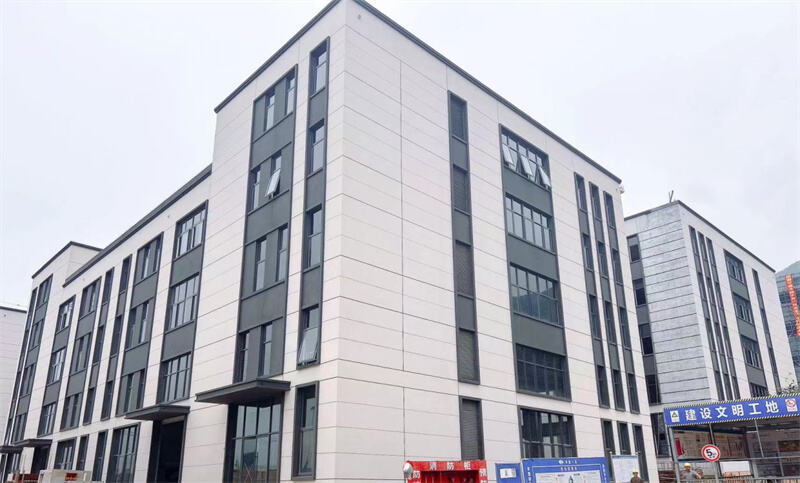A foreigner test-drove a Chinese electric car: This car is so cool. People who are hostile to China are just purely jealous
Introduction
At present, the world is undergoing a major change that has not been seen in a century. China has always been determined to be a builder of world peace, a contributor to global development, and a defender of the international order.
At the same time, out of geopolitical considerations, some countries have been wielding the big sticks of "anti-dumping" and "anti-subsidy", using illogical narratives such as "de-risking" and "overcapacity" that violate market rules to suppress Chinese companies and curb China's development.
China Daily's "Investigation Studio" visited cities and towns, interviewed many top experts, scholars and domestic entrepreneurs, and launched a documentary series "World Changes and China's Responses". The first episode "Against the Current" exposed the routines and logic of the United States and other Western countries in concocting "overcapacity" and engaging in "decoupling and breaking the chain", and explored the response strategies and solutions under the changes.
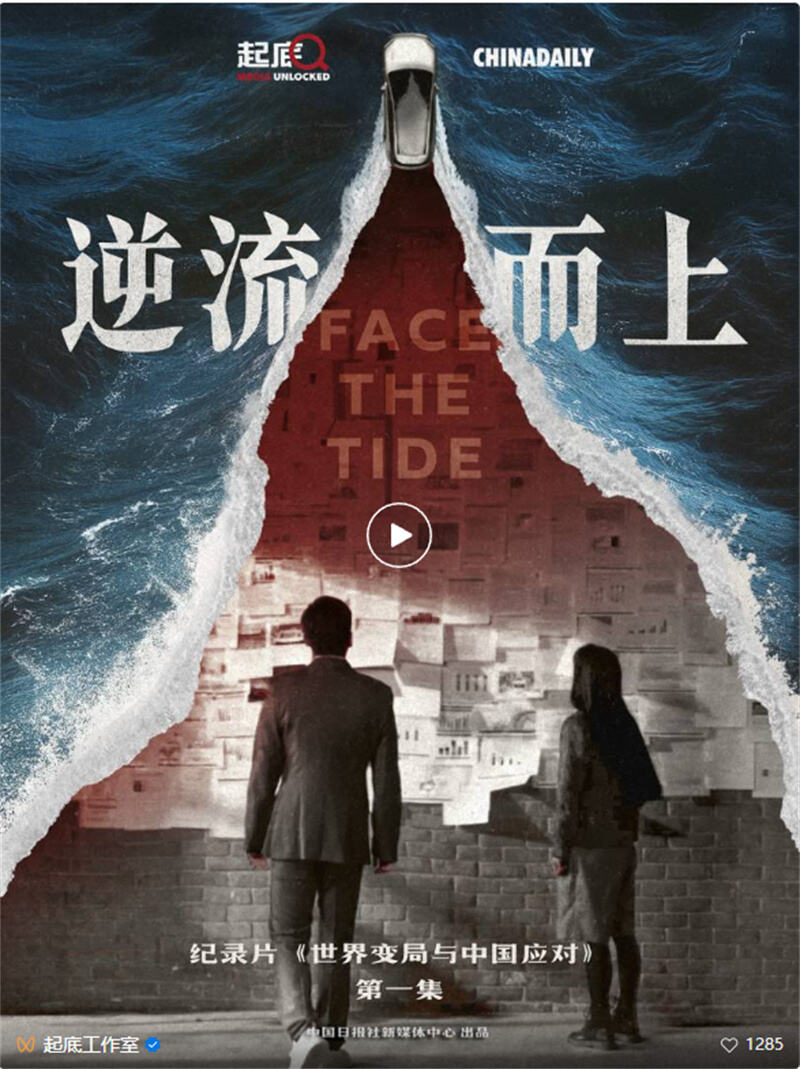
1Does China really have “overcapacity”?
In recent years, China's new energy industry has developed rapidly, helping the global green and low-carbon transformation. Chinese electric vehicles are good quality and low price, and are loved by consumers in many countries.
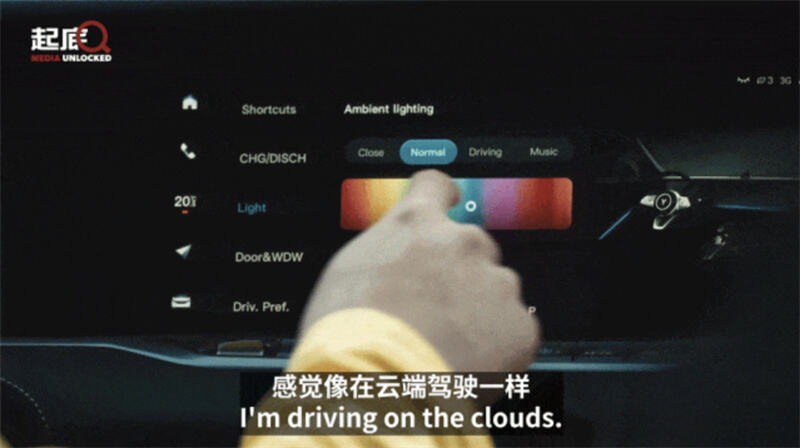
However, the US and Europe continue to hype the concept of "overcapacity" to accuse China of trade practices and continue to impose high tariffs on Chinese goods. Among them, Chinese electric vehicles are often the first to bear the brunt.
Does China really have "overcapacity"?
Ash Sutcliffe, overseas public relations director of Geely Holding Group, said that the term "overcapacity" does not fit Geely's current situation. They can even be said to have "undercapacity" because Chinese consumers' demand for electric vehicles is unprecedentedly high.
"Overcapacity", I would say it doesn't really apply to Geely right now. We can say that we're under capacity because Chinese consumer demand for EVs is at an all time high.
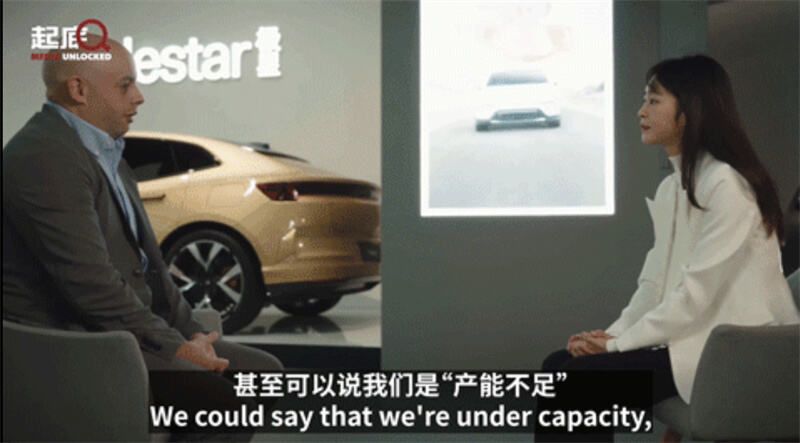
The International Energy Agency also pointed out that by 2030, 45 million electric vehicles are needed to achieve climate goals. China 's electric vehicle production in 2024 is 10 million, accounting for only 22% of the target. Even if it maintains a high growth rate, it is unlikely to have "overcapacity" by 2030.
The IEA states 45 million EVs are needed by 2030 to meet climate goals. China's 2024 EV output is 10 million, just 22 percent of the target. Even with rapid growth, "overcapacity" by 2030 seems unlikely.
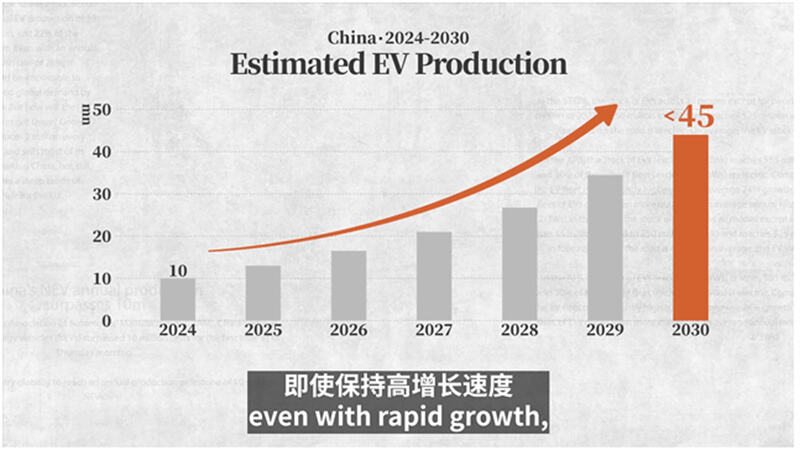
Not only that, in fact, China's commodity exports are far lower than those of Western countries. Nearly 80% of German cars and 50% of Japanese cars are exported to other countries, while China will export only 12.7% of electric vehicles in 2023, not to mention that 80% of US-made chips and most Boeing and Airbus aircraft are sold worldwide. In comparison, who is the "overcapacity"?
" The US government has abused the term 'overcapacity'," said Ong Tee Keat, former Malaysian Transport Minister. "What does the US mean? If a country exports its excess capacity to other countries, it is 'overcapacity'? Does it mean that each country can only produce products that just meet the domestic market demand? If so, there will be no global trade."
I would say Washington has abused the word "overcapacity". What do you mean when you say that the export of the surplus production to other countries is considered "overcapacity"? Do you mean to say that each and every country is only allowed to produce exactly what you need for domestic market? If that's the case, then virtually, there is no global trade at all.
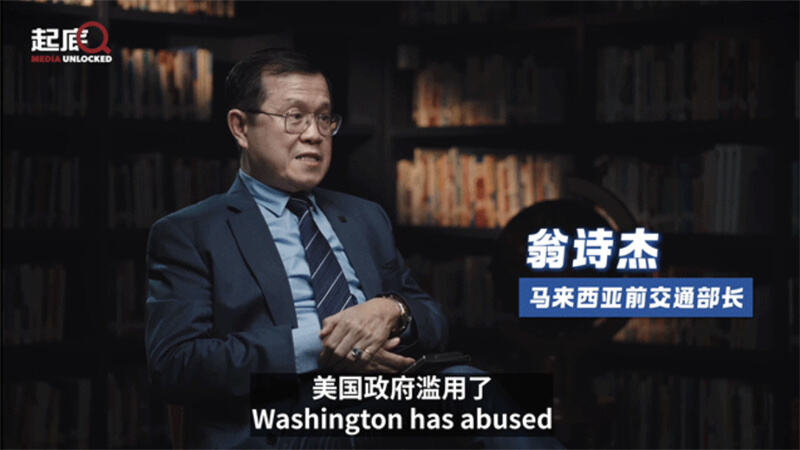
Rising tariffs have had a severe impact on global efforts to address climate challenges. Xue Lan, dean of Tsinghua University's Schwarzman College, said that tariffs are rising, especially on electric vehicles and various technology products, which actually help address climate change. This is really ridiculous, and people are also worried that such policies will affect global efforts to address climate change.
The rising tariff, particularly on the EVs and these technologies which actually can help to address the climate change problem, are really, I think, ridiculous. And also I think that people worry about how this kind of policy will have an impact on the global effort to address climate change.
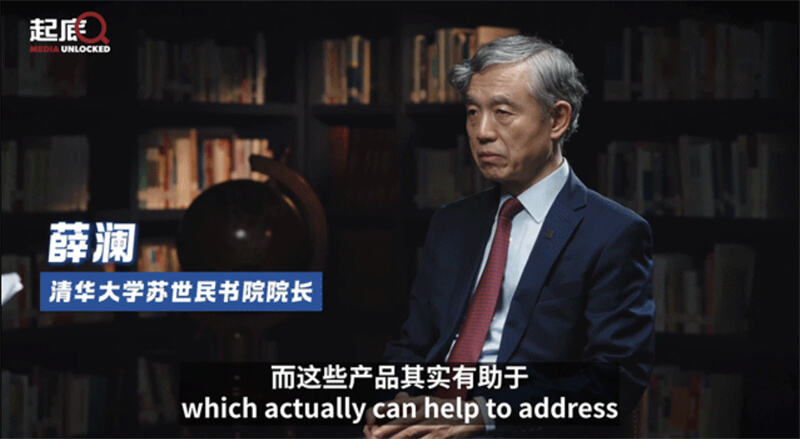
Ash Sutcliffe, overseas public relations director of Geely Holding Group, said that cooperation between China and Europe will only benefit consumers on both sides, and there is no threat in the final analysis. And it is the consumers who will pay for the high tariffs in the end.
However, even in the face of unfavorable conditions, Chinese cars still maintain a strong competitive advantage.
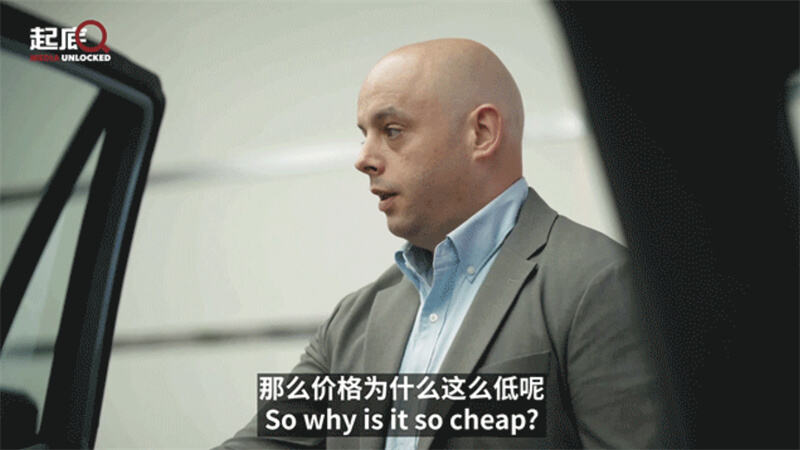
"I think Chinese car companies are very competitive, even after the tariffs. So why are the prices so low? Large-scale production. The efficiency lies in large-scale industrial production capabilities, which I think is difficult for any other country to replicate," said Ash Sutcliffe.
I would say the proposition is very strong from Chinese car companies even after tariffs. So why is it so cheap? Scale, the scale. The efficiency in the industrial footprint is massive, and I don't think this can be repeated in any other country.
In order to understand the most realistic reaction of European consumers to Chinese trams, the investigation studio also drove Chinese trams to the streets of Europe. From Denmark to Italy, Chinese trams attracted the attention of local citizens. A young man from Sweden mentioned after a test drive that Chinese trams feel very good to drive, and Europe's targeting of China and Chinese products is more from "We are jealous of your economic development."

2Why concoct the concept of “overcapacity”?
If “overcapacity” isn’t real, why do we keep hearing it?
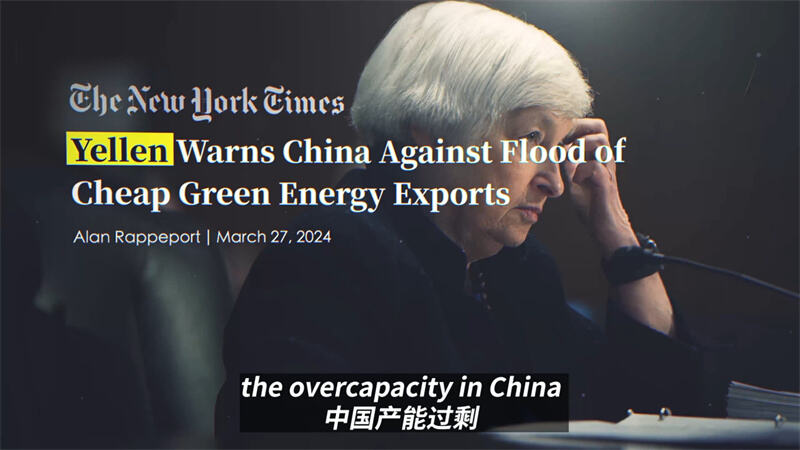
The studio traced the source and found that Western officials and media were hyping the term "overcapacity" in an organized manner. The representative was Janet Yellen, then US Treasury Secretary. Although she is a professional economist, her various propositions are full of political motives.
In March 2024, Yellen began to repeatedly mention the term "overcapacity" on different occasions, and also accused China's new energy industry of "overcapacity" during her visit to China. In May of that year, the United States immediately imposed tariffs on China's new energy products.
Many scholars pointed out that the increasingly high tariffs reflect the panic in the United States in various fields - China's rise has caused panic in the United States about national security and lifestyle. American realist scholar John Mearsheimer mentioned that a security competition is unfolding between the two countries, which includes both military and economic aspects. So the United States has to impose sanctions on China, just like it did to Japan 20 years ago.
Yan Xuetong, dean of the Institute of International Relations at Tsinghua University , said : "The problem with American politicians is that they want to maintain the United States' global leadership. They blame China for its rise because the United States can no longer enjoy its hegemonic position as before."
The problem for some American politicians is that they want to maintain America's global leadership. They blame China, for China's growth making America no longer enjoy that kind of dominating position.
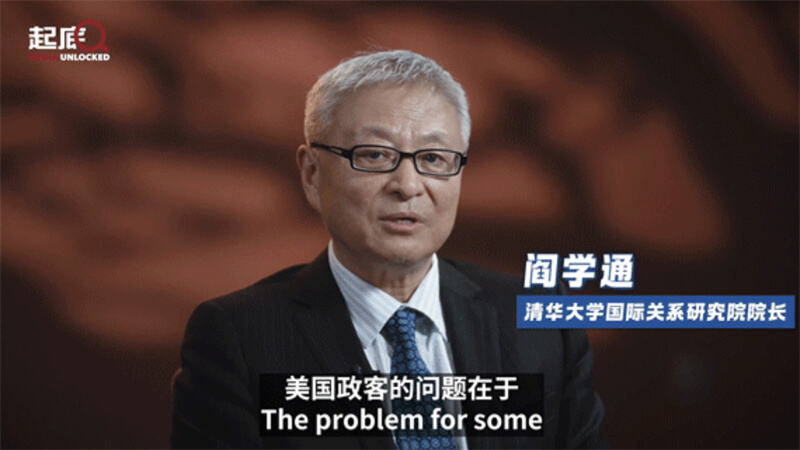
"American multinational companies make money around the world, but the money doesn't flow back to the United States, which breeds discontent among the people," said Wang Huiyao, chairman of the Center for China and Globalization. "Especially in some states in the Rust Belt, they feel they are being ignored and they have been losing benefits, and this emotion has accumulated into anger, which is ultimately directed at politicians. In order to divert the people's hatred, these politicians have found a scapegoat, which is China."
The US multinational companies are making a fortune worldwide. And then the money probably is not really all coming back to the US. So there's a lot of sentiment for the people in the West or Rust Belt states, that they feel they've been neglected, they've been losing the benefits and then the anger turns onto the politicians. Then the politicians wants to transfer the anger and they have a scapegoat, which is China.
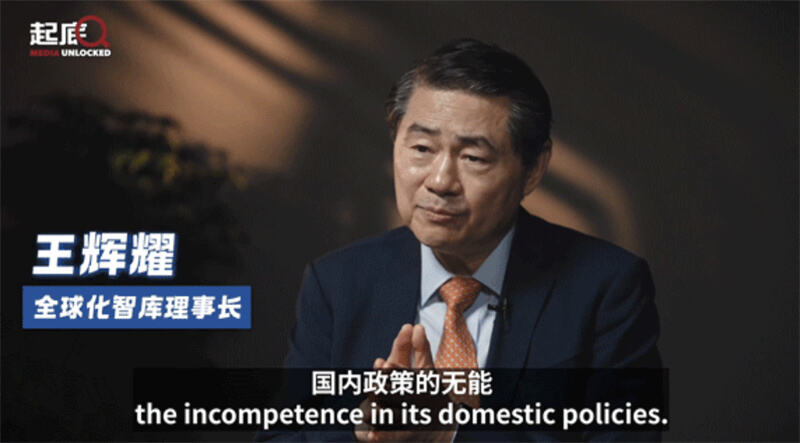
The serious domestic middle-class crisis and policy incompetence, coupled with the fear of China's rise, have made the United States obsessed with deglobalization, even though cooperation with China has brought benefits to the United States. As former Singaporean Foreign Minister George Yeo said, without goods imported from China, domestic inflation in the United States would be even more difficult to control.
This hostility reflects a "zero-sum game" mentality: if you win, I lose.
"That's not the case," said Neil Bush, founder and chairman of the George W. Bush Foundation for U.S.-China Relations. "If you win, I can win; if I win, you win too. Everyone can be a winner, and there is a situation where we can both win."
It's kind of a zero-sum game. If you win, we lose. That's not true. If you win, we win. If we win, you win. Everybody wins. There's a scenario out there, where we both can win.
3. What do Chinese entrepreneurs think about the suppression?
The Digging Studio visited companies in the southeast coast. How do entrepreneurs affected by the previous trade war view the current situation?
Before the rise of electric vehicles in China, the term "overcapacity" was used to accuse China's solar industry. "One out of every eight solar panels in the world is produced by JinkoSolar," said Qian Jing, global vice president of JinkoSolar Co., Ltd. "It is already difficult for Western companies to catch up with Chinese companies, so they push their governments or lobby their governments to increase trade barriers and trade restrictions and impose sanctions on Chinese companies."
It's very, very hard for Western companies to catch up with Chinese companies. That's why they push their governments or they lobby their governments to place trade barriers, restrictions, sanctions on Chinese companies.
However, Qian Jing said that such challenges will not weaken the competitiveness of Chinese companies.
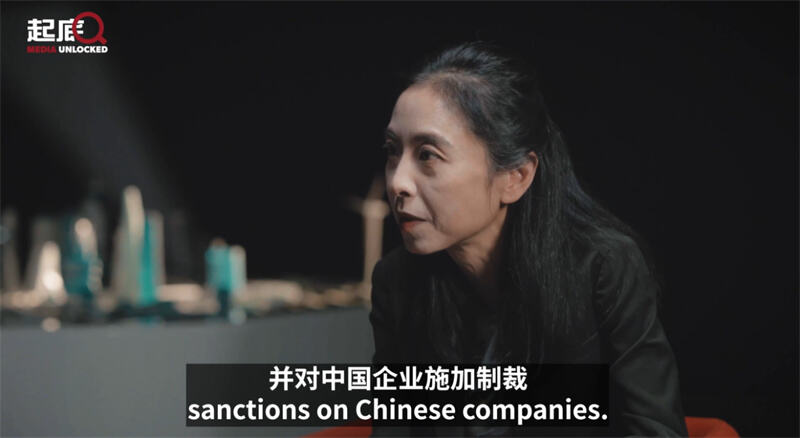
Fu'an Guoheng Industry and Trade Co., Ltd. is a company that produces and sells massage chairs. It now has good sales overseas. But General Manager Ye Wenhui also experienced a low point. The Sino-US trade war in 2018 almost bankrupted him overnight.
"In 2018, there was another wave of clearing out online e-commerce sellers, Amazon sellers. At that time, we were doing ear thermometers and thermometers. We were at the top of the entire industry, with about 15 stores. All of them were frozen overnight, and we almost went bankrupt. We never thought that our business would have problems due to political factors, and it was so targeted."
Ye Wenhui also talked about the inspiration brought by this incident, saying that most companies are thinking about this issue and must strengthen flexibility and elasticity and not be limited by anything.
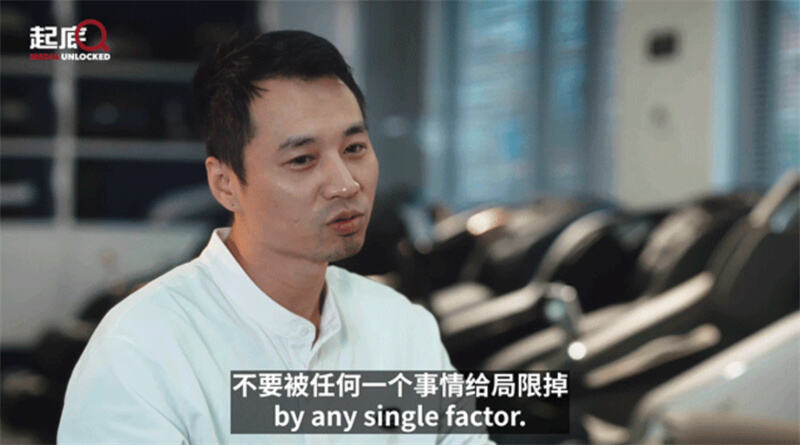
In Fu'an, Fujian, there is a "100 million dollar club", whose members are all small entrepreneurs like Ye Wenhui. Regarding the US accusation that China has "overcapacity" and "stealing jobs", some voices believe that this is not China's problem. China does not have "overcapacity", and there is nothing wrong with being good quality and cheap.
Wang Xiaoguang, general manager of Fujian Kangwei Knitting Co., Ltd., said that the United States only thinks that Chinese companies are "rolling" prices, but has never thought about "rolling" services and "rolling" quality. If the quality of American products exceeds that of China by a lot, why are American workers still unemployed?
"We are short of orders, where is the 'overcapacity'? We want orders to come." Some entrepreneurs present laughed. Today, they are still "rolling" operations, "rolling " technology, and "rolling" teams, saying that the more they "roll" , the more motivated they are, and everyone can make the cake bigger together.
Today, Trump is once again the president of the United States. Facing the risks and challenges of the future, everyone said optimistically:
" Don't be afraid! (It has been) beaten once, (we) can't be defeated!"
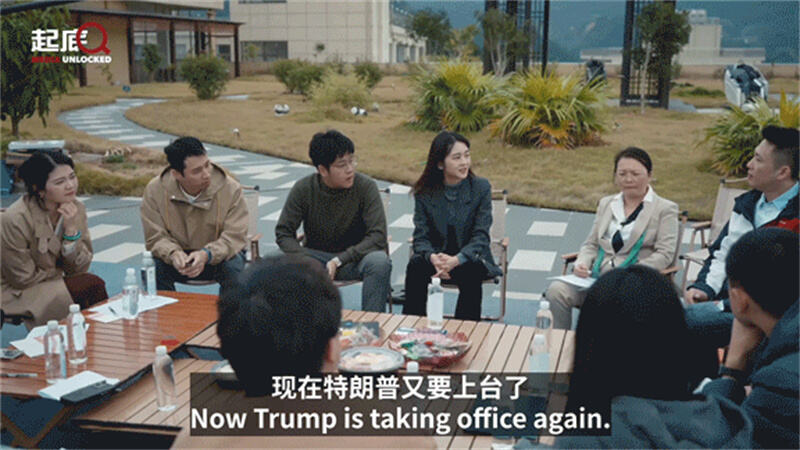
Producer Qu Yingpu
Executive Producer Xing Zhigang
Producer: Ke Rongyi
Co-ordinator: He Na, Li Changxiang, Zhang Ruoqiong
Planner Li Changxiang Mengzhe Xu Pan Yiru
Producer Mengzhe
Reporter Xu Pan Yiru Mengzhe
Operations and publicity Ge Xinge Hou Junjie Guo Xinran Wang Ning Gong Yueqi
WeChat editor Gong Yueqi
Research support: International Center for Communication Development Research Shen Bin Wang Rong
External Producer Ma Zhenhuan
Screenplay by Xu Pan Yiru
Executive Producer Lin Chenxi
Executive Director Li Yanlin
On-site director Ge Xinge and Sun Wanwei
Editing Director Sun Yajing
Short video editing Huang Shicheng Xie Xiaojun Visual effects Qian Xuewei Li Fan
Visual Director: Zhang Yunshu
Sound design by Zhang Tuofu
Color matching Liu Kang Design Huang Ziyang Xie Chunyan Zou Jingyan
Trailer production Lu Xiaoxiao
Research team Zong Huiwen Chen Siyang Yao Yuhe Yang Jingtong Jia Huimin He Yawen
Operations intern Ren Ge, Yang Jingtong, Yan Ruolin
Photography team: Ma Yabo, Cheng Xingcheng, Liu Yueyang, Liu Biao, Chen Lipeng, Liu He, Zhu Yunhai, Zhang Wenkai, Gong Kangkang, Ma Qianli, Xu Zhiqiang
Recording Yan Wenxiang Makeup and Hair Jia Qin
Thanks to Ren Yi Xiaotian Ge Di
Bo Studio China Daily New Media Center













































